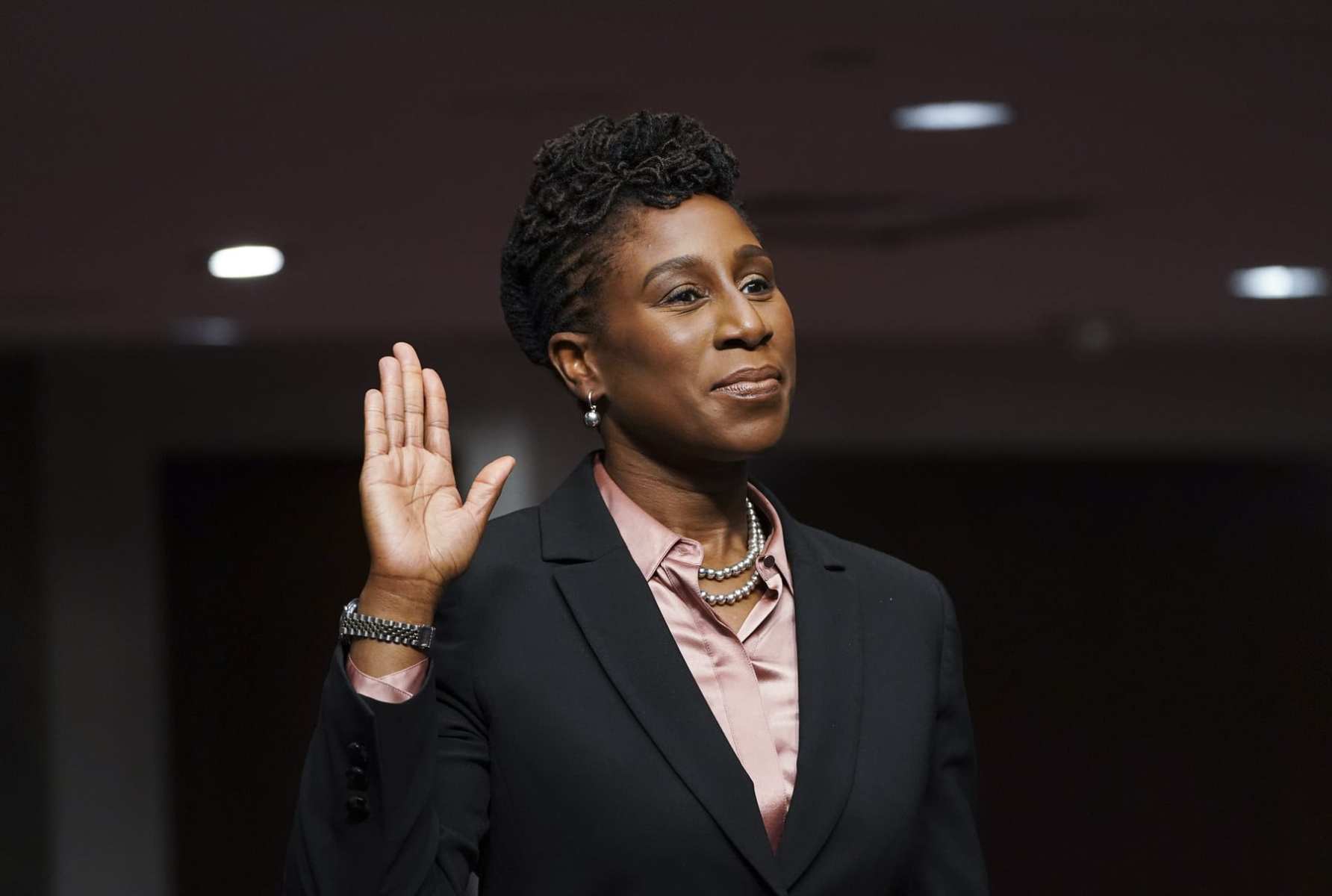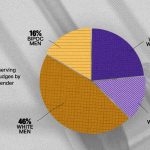President Joe Biden has nominated or announced his intent to nominate a higher percentage of women to federal judgeships over the first six months of his presidency than any of his predecessors did during their terms, putting him on track to shatter previous records.
As of the beginning of July, Biden had nominated or announced his intent to nominate 30 jurists to the federal bench. Twenty-three — about 77 percent — of those nominees are women, and 17 — about 57 percent — are women of color, according to an analysis done by Demand Justice.
During Donald Trump’s one-term presidency, 234 of his federal judicial picks were confirmed and 56 of them, or about 24 percent, were women. Though he nominated a slightly higher percentage of women jurists than his Republican predecessors, Trump’s picks still skewed White and male when compared with those of Democratic presidents, according to the Pew Research Center.
Former President Barack Obama, under whom Biden served, had 329 federal judges confirmed over two terms and 138 of them, or about 42 percent, were women, the Demand Justice analysis showed.
Demand Justice is a group that formed after the 2016 election, when Republican voters were motivated by Trump’s promise to nominate conservative judges and justices. It aims to encourage Democrats to vote on the same issue and keep public attention focused on Biden’s promise to nominate a Black woman to fill any Supreme Court vacancy.
Trump delivered on his campaign pledge to nominate conservative jurists, installing three Supreme Court justices — Neil Gorsuch, Brett Kavanaugh and Amy Coney Barrett — and more than 200 federal judges over his four-year term, reshaping the federal trial and appeals courts. When Trump left office in January, more than a quarter of all federal judges were his nominees.
Currently, about two-thirds of the federal judiciary are men and one-third are women, according to an American Constitution Society analysis of data collected by the Federal Judicial Center.
As of May 2020, of 1,387 active and senior federal judges, there were just 11 active judges who self-identified as being an LGBTQ+ person, according to the Minority Corporate Counsel Association.
At the district court (federal trial courts) level, Biden has nominated or announced his intent to nominate 21 jurists, of whom 16 — about 76 percent — are women. Trump nominated 174 district judges who were confirmed and 44, or about 25 percent, were women. Obama nominated 268 district judges who were confirmed and 110, or about 41 percent, were women.
At the circuit court (federal appeals courts) level, Biden has nominated or announced his intent to nominate nine jurists, seven of whom are women, or about 78 percent. Trump nominated 54 circuit judges who were confirmed, and 11, or about 20 percent, were women. Obama nominated 55 circuit judges who were confirmed and 24, or about 41 percent, were women.
“I think that these numbers, both in terms of race and gender, really signals how comprehensively President Biden and his team are looking at the judiciary and where it is out of balance,” said Chris Kang, a Demand Justice co-founder.
Kang oversaw judicial nominations in the Obama White House and helped spearhead the confirmations of Supreme Court Justices Sonia Sotomayor and Elena Kagan.
When the Senate last month confirmed Biden’s nominee Ketanji Brown Jackson to the U.S. Court of Appeals for the D.C. Circuit, it was the first time in nearly a decade that a Black woman had been confirmed to a federal appeals court. Jackson is also thought to be on Biden’s short list should he have the opportunity to fill a Supreme Court vacancy. Shortly after, the Senate confirmed another Black woman, Candace Jackson-Akiwumi, to the U.S. Court of Appeals for the Seventh Circuit.
Kang noted that every sitting Supreme Court justice except for Kagan was a federal circuit court judge before joining the highest court. Biden has prioritized filling these vacancies in part because they are considered a proving ground for potential Supreme Court nominees.
The dearth of Black women confirmed to circuit courts over the past decade “really speaks to the lack of a pipeline and what happens when you do not have sufficient diversity in your lower courts,” Kang said.
He added: “It is incredibly important to have Ketanji Brown Jackson on the D.C. Circuit. She is immediately one of the top contenders for the Supreme Court.”
Demand Justice last month financed an ad published in the New York Times in which 18 legal scholars called on Justice Stephen Breyer, who at 82 is the court’s longest-serving liberal jurist, to retire. It was an extension of a campaign the group launched earlier this year to encourage Breyer to step down from the bench early in Biden’s presidency so he will be able to usher a Black woman justice through the Senate confirmation process while the upper chamber is under Democratic control.







